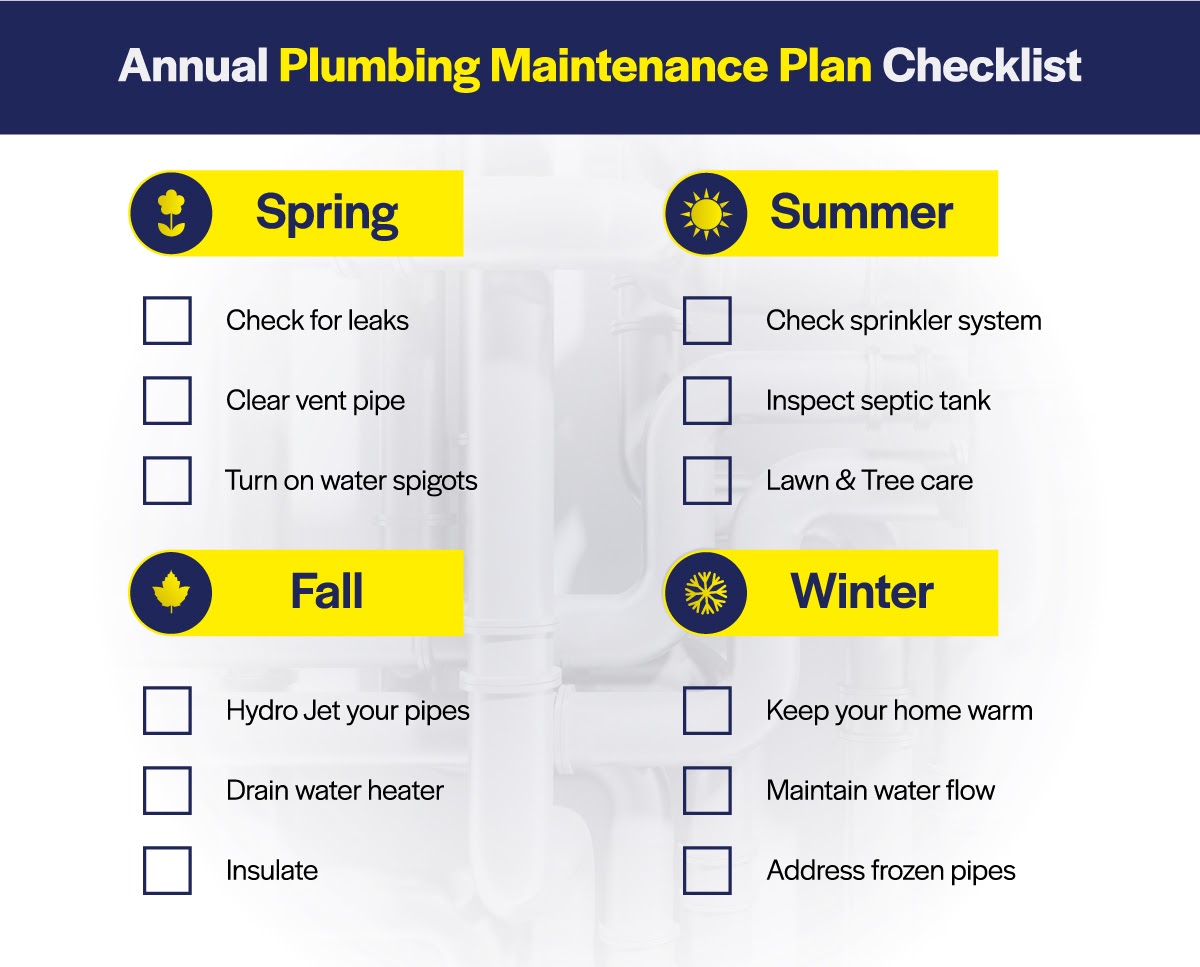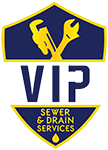
Daily Maintenance Tips
Though there are steps you should take through the year, as seasons change. There are several easy, maintenance tips you should practise daily to prolong the well being of your plumbing maintenance. Some of these include:
Take good care of your disposal. Turn your water and disposal on before adding food and avoid using your disposal as a garbage can. Foods such as pasta or fruit peels are difficult to grind and can damage your disposal. After using your disposal, run cool water for about 15 seconds to make sure everything flushes through and doesn’t linger behind.
Be smart with your appliances. Clean the lint traps on your washing machine, ideally after each use and opt to run your dishwasher at night. This will conserve hot water and maintain good water pressure throughout the day.
Address leaks immediately. Be on guard for water or signs of moisture under your sinks. While you do your dishes, brush your teeth or take a shower, pay attention to your drain. If the water drains slowly or bubbles, there’s some kind of obstacle in the way, preventing it to flow freely. This could be the cause of a clog forming in the near future. When using your faucets, pay attention to your handles or valves. If they seem to be leaking, this could mean the rubber ring that forms a seal in your faucet handle is warned out and needs to be replaced.
 Spring Plumbing Maintenance
Spring Plumbing Maintenance
Spring cleaning is an excellent opportunity to check in on your plumbing system, to make sure the cold winter months haven’t done any serious damage.
Check for leaks. As we mentioned, addressing leaks and signs of a drain clog is something you should think about daily as you use your fixtures and appliances. But some areas of your home may not get as much daily attention or may not be visible at all. Springtime is a good time to check these areas and make sure no post-winter leaks exist in your plumbing system. For a more detailed overview of how to detect potential leaks around your property, check out our article on leak detection.
Check your vent pipe for any obstruction. Your vent pipe is located on your roof and it is directly connected to your plumbing system. Your vent pipe is responsible for allowing air into your plumbing system to maintain proper air pressure which allows for your sewage to keep moving.
Check in on your water spigots. If your previously installed insulation covers on your water spigots to shield them from the freezing, winter temperatures – springtime is a good time to take them off. You should also turn your spigots on and make sure they survived the harsh cold without any damage and leaks.
 Summer Plumbing Maintenance
Summer Plumbing Maintenance
In contrast to winter months, summer brings on the heat and affects how you use your plumbing system, therefore affecting how you care for it as well.
Check in on your sprinkler system. As the heat rises, the demand for using your sprinklers to keep your lawn alive, does too. Clean your sprinkler heads and make sure they are working properly.
Have your septic system inspected. If you have a septic tank on your property, have it inspected and pumped if needed. To help your septic system operate properly, use water efficiently. The less water you use, the less work is demanded from your septic system.

 Fall Plumbing Maintenance
Fall Plumbing Maintenance
Fall time is essentially preparing for winter, when it comes to your plumbing maintenance.
Hydro Jet your pipes. Mid to late fall is a good time for some hydro jetting. This will clear your pipes from any sand, salt and leaves that might have found their way into your drain system. Because hydro jetting includes a camera inspection, it will also aid in identifying any leaks or weak spots that may not withstand the winter season ahead.
Check your outdoor spigots. Shut off the water valves for all your outdoor spigots, drain the water in your outdoor water lines and disconnect all hoses. It is also a good idea to cover your spigots with an insulation cover.
Insulate. Insulate any pipes that are outside, in your garage, basement or crawl space. This includes sealing any cracks around windows, exterior door frames or anything that can allow the cold to enter your home.
Give your water heater a check. Because your water heater has to work extra hard during the winter months to supply you with hot water, checking it on it before the temperatures drop drastically will help ensure you aren’t left with a broken water heater during the most unforgiving time of year. For a step by step guide on how to do that, check out our more detailed article on winter prepping your plumbing system.
 Winter Plumbing Maintenance
Winter Plumbing Maintenance
When it comes to plumbing, one of the biggest concerns during winter are frozen pipes. Though a lot of the work to prevent this should be done prior to any cold snaps, there are some things you should do during winter, to help your drain system get by.
Keep your home and pipes warm. Just like most of us, your pipes perform better when they aren’t freezing cold. A few things you can do to aid with this is to eliminate drafts in your home, leave any cabinets that house pipes open to allow warm air to enter (especially overnight) and make sure to heat your entire home.
Keep water flowing. When water flows, it’s less likely to freeze so make sure to run all of your valves at regular intervals during the winter months. For those extremely cold nights, leave a slow drip in your faucets to encourage the steady flow of water.
For tips on how to identify and handle a frozen pipe, read our previously mentioned article on preparing your plumbing system for the winter months.
Remember that for plumbing emergencies, during any season, VIP Drain Services is at your service 24/7!



